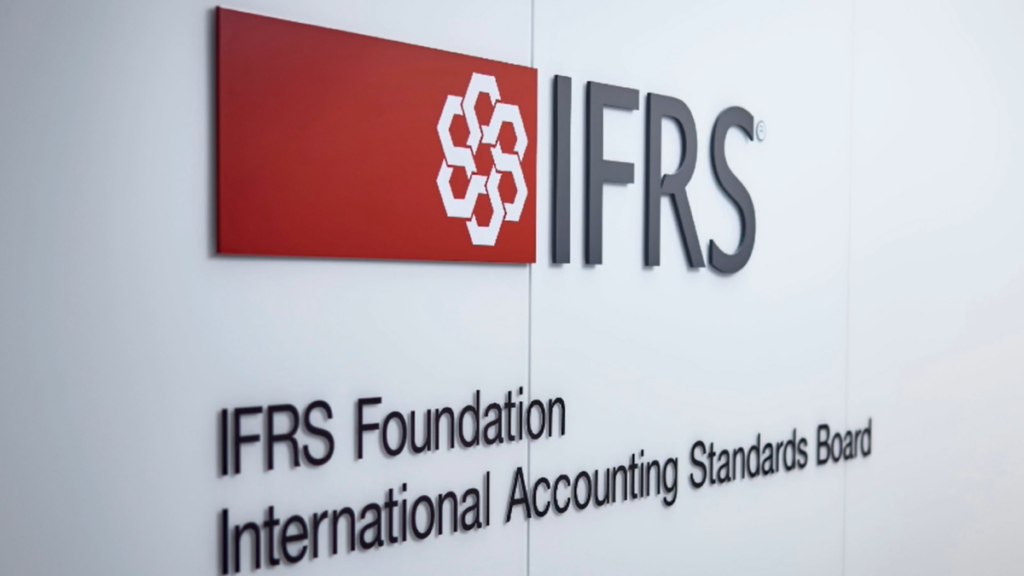IFRS Foundation Releases Q&A Guidance on GHG Emissions Disclosure Under IFRS S2

- Entities must disclose absolute gross Scope 1, 2, and 3 emissions—material Scope 3 emissions are not optional.
- The Greenhouse Gas Protocol is central to measurement, but IFRS S2 requirements take precedence where conflicts arise.
- Disclosure of methodology, targets, and the use of carbon credits is required to support transparency and comparability.
The IFRS Foundation has released educational guidance to clarify how companies should report greenhouse gas (GHG) emissions under IFRS S2 Climate-related Disclosures, enhancing investor visibility into transition risks and sustainability performance.
“The objective of IFRS S2 is to require an entity to disclose information about its climate-related risks and opportunities that is useful to primary users of general purpose financial reports in making decisions relating to providing resources to the entity.”
Scope of Disclosure: All Emissions Must Be Counted
IFRS S2 mandates disclosure of absolute gross GHG emissions—Scopes 1, 2, and 3—based on materiality, without considering removal offsets like carbon credits.
“Requiring the disclosure of all scopes of GHG emissions enables relevant information to be provided about an entity’s exposure to transition risk…”
Companies must consider all 15 categories defined in the GHG Protocol Corporate Value Chain Standard when identifying relevant Scope 3 emissions. However, only material and relevant categories must be reported.
“An entity is required to consider all 15 categories of Scope 3 GHG emissions… and determine which categories are relevant.”
RELATED ARTICLE: IFRS, TNFD Sign Agreement to Advance Nature-Related Financial Disclosures
Measurement Framework: Prioritize Quality Data
Entities are required to use the GHG Protocol Corporate Standard for measurement, unless jurisdictional exceptions apply. The Scope 3 measurement framework introduced by the ISSB guides how entities should prioritise data inputs—favoring verified, specific, and directly measured data.
“IFRS S2 requires entities to prioritise timely data that faithfully represents the jurisdiction of, and the technology used for, the value chain activity and its GHG emissions.”
When using secondary data, entities must disclose the extent of its use and why it was necessary, based on the availability of reasonable, supportable information.
Methodology & Boundary Transparency
Companies must clearly disclose the measurement approach (equity share or control), explain the organisational boundary, and provide disaggregated data for entities within and outside the consolidated accounting group.
“An entity is required to disclose the approach it selects and the reason for its choice of measurement approach…”
This is crucial for comparability across entities with different structures or operations.
Emissions Targets: If Set, Must Be Disclosed Transparently
IFRS S2 does not require companies to set GHG targets—but if they do, full disclosure is mandatory, including gross vs. net targets, gases covered, and use of carbon credits.
“If an entity has a net GHG emissions target, the entity is also required to separately disclose its associated gross GHG emissions target.”
The entity must also provide insight into the credibility and integrity of any carbon credits used, including the scheme, offset type (nature-based or technological), and assumptions about permanence and additionality.
Consistency in Comparative Reporting
Entities are not required to restate prior GHG disclosures when the composition of the reporting entity changes (e.g., M&A). However, they may need to explain how such changes affect current-year disclosures if material.
“The GHG emissions of a subsidiary newly acquired in the current reporting period will not be included in GHG emissions information in the comparative information…”
Financed Emissions: Flexibility with Accountability
For financial institutions, IFRS S2 requires disclosure of financed emissions (Category 15) but does not prescribe a specific methodology—provided the method gives a faithful representation and is fully explained.
“Although IFRS S2 does not require an entity to use any specific measurement methodology… it requires disclosure of additional information about its financed emissions, including the methodology used.”
This release provides operational clarity as organizations prepare to implement IFRS S2, with a focus on data quality, full value chain consideration, and decision-useful disclosures for investors.
Read the Greenhouse Gas Emissions Disclosure requirements here.
Follow ESG News on LinkedIn












